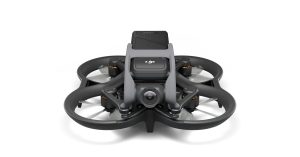Drone News
AI allows high-speed drones to autonomously fly in unknown environments

Drones can provide a low-cost and low-impact solution to explore complex and unknown environments such as forests, buildings, or caves. They are fast, agile, and small, and they can carry sensors and payloads virtually everywhere. However, autonomous drones can hardly find their way through an unknown environment without navigation, which is usually done by an experienced human pilot.
Researchers are working hard towards independent autonomy for flying robots. A team of researchers at the University of Zurich have developed a new approach to autonomously fly quadcopters through the unknown, complex environments at high speeds using only onboard sensing and computation. The new approach enables an autonomous quadcopter to fly through previously unseen environments such as forests, buildings, ruins, and trains, keeping speeds of up to 40 km/h and without crashing into trees, walls, or other obstacles. The researchers note that the new approach could be useful in emergencies, on
Source: www.inceptivemind.com









